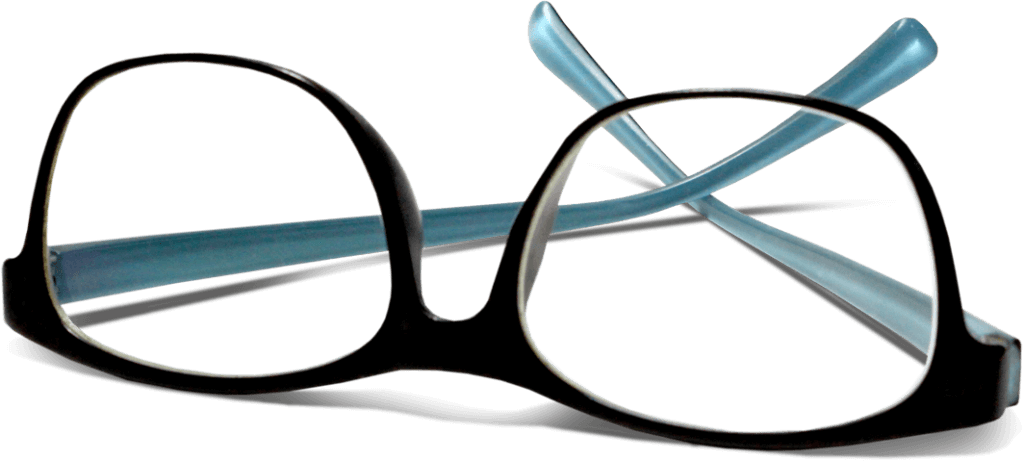Cataract Journey
Welcome
to Our
Cataract
Surgery
Center

Welcome to Our
Cataract Surgery Center
Welcome to Our Cataract Surgery Center
Your Journey to Clear Vision
Welcome to our Cataract Surgery Center, where we’re dedicated to helping achieve your vision goals through advanced cataract surgery techniques and personalized lens implant choices. Our skilled surgeons understand the significance of clear and vibrant vision in maintaining your independence and enhancing your quality of life. Here is a video summarizing cataract surgery and intraocular lens options.
What is a cataract?
Before deciding on cataract surgery, it’s essential to understand what cataracts are and have an eye exam. Cataracts are the clouding of the eye’s lens due to protein clumping, leading to vision problems. Cataract symptoms include:
- Not seeing well, even with updated glasses or contacts.
- Cloudy or double images with your other eye closed.
- A distracting glare, such as from oncoming headlights when you drive.
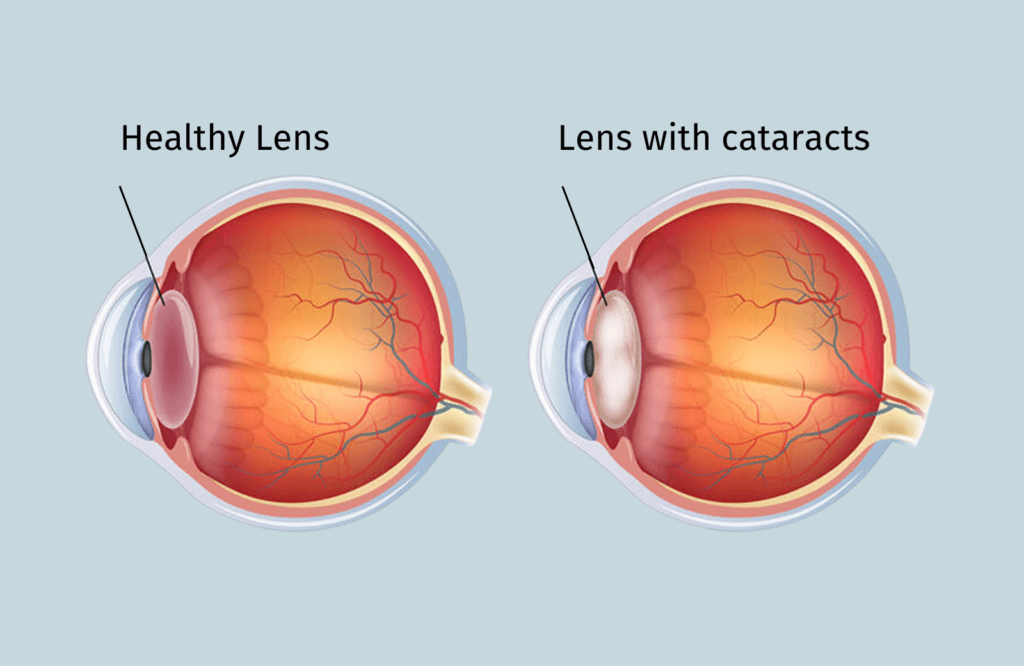
What is a cataract?
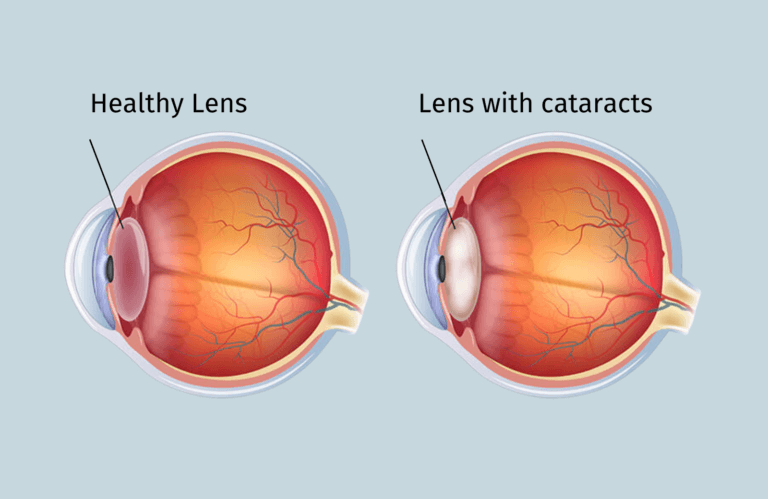
Before deciding on cataract surgery, it’s essential to understand what cataracts are and have an eye exam. Cataracts are the clouding of the eye’s lens due to protein clumping, leading to vision problems. Cataract symptoms include:
- Not seeing well, even with updated glasses or contacts.
- Cloudy or double images with your other eye closed.
- A distracting glare, such as from oncoming headlights when you drive.
Cataract Surgery:
Timeline To Clear Vision
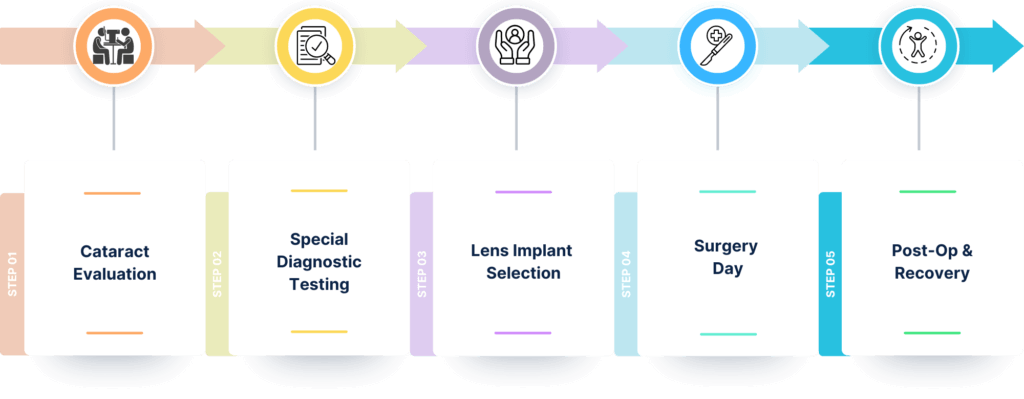
Cataract Evaluation
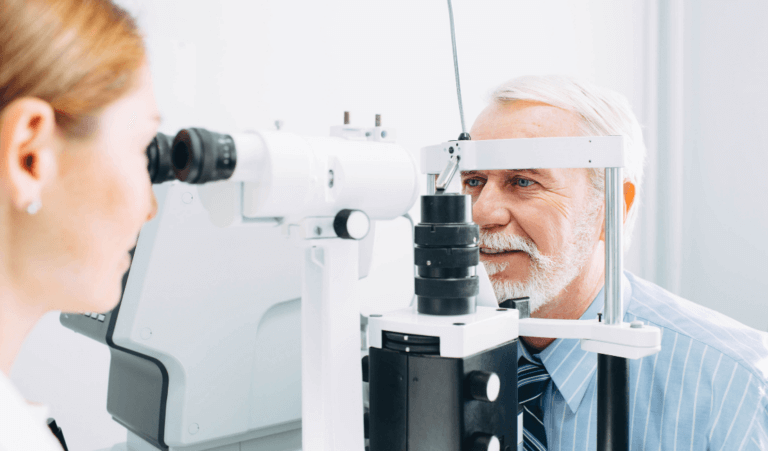
During your complete eye exam, your doctor will assess the health of your eye, eye surface, and eyelids. The doctor will:
- Determine if surgery would help you.
- Tell if you if have any other eye conditions need treatment.
- Teach you how to improve the health of your ocular surface (e.g., dry eye) before special diagnostic testing.
The doctor will also discuss your lifestyle and reducing your need for glasses after surgery. This discussion will help the doctor recommend the best intraocular lens for you. There is more information below.
Cataract Evaluation

During your complete eye exam, your doctor will assess the health of your eye, eye surface, and eyelids. The doctor will:
- Determine if surgery would help you.
- Tell if you if have any other eye conditions need treatment.
- Teach you how to improve the health of your ocular surface (e.g., dry eye) before special diagnostic testing.
The doctor will also discuss your lifestyle and reducing your need for glasses after surgery. This discussion will help the doctor recommend the best intraocular lens for you. There is more information below.
Special Diagnostic Testing
A diagnostic or testing visit will be scheduled prior to surgery to measure the size, shape, and light focusing properties of your eye using sophisticated technology. The accuracy of this information is very important and if your eyes feel dry before the appointment, please use non-preservative eye drops a few days before. The surgeon will use this information along with the eye examination to qualify you for the types of lens implant choices you have based on your visual outcome goal.
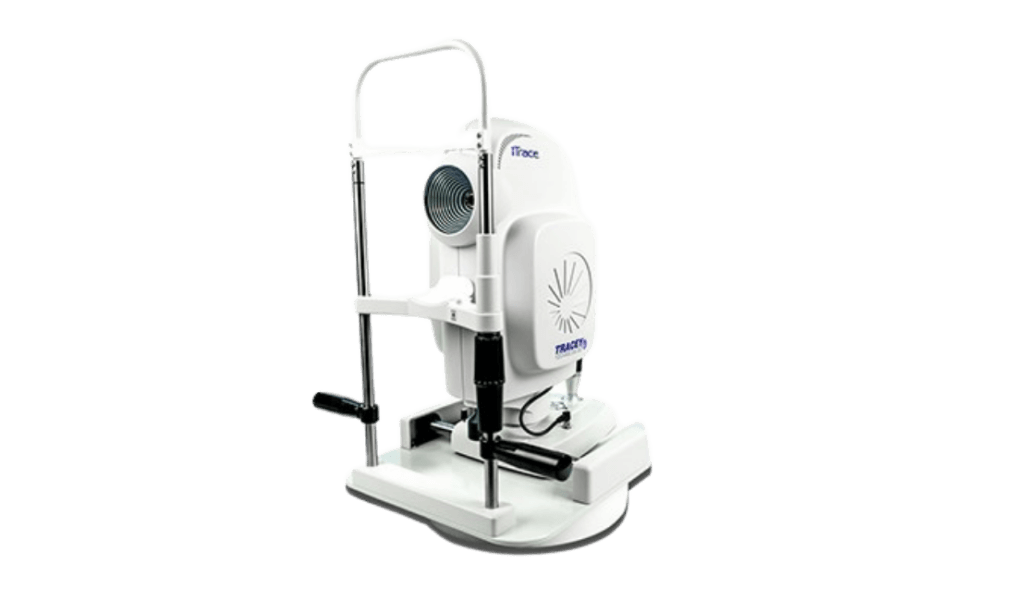
Special Diagnostic Testing
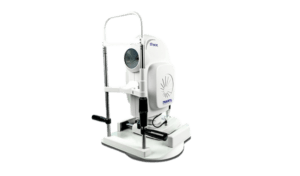
A diagnostic or testing visit will be scheduled prior to surgery to measure the size, shape, and light focusing properties of your eye using sophisticated technology. The accuracy of this information is very important and if your eyes feel dry before the appointment, please use non-preservative eye drops a few days before. The surgeon will use this information along with the eye examination to qualify you for the types of lens implant choices you have based on your visual outcome goal.
Selecting Your Lens Options - Tailored For Your Unique Needs
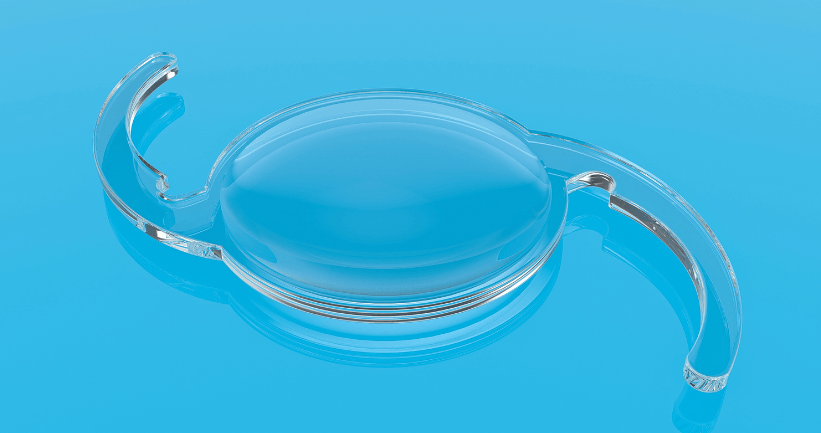
We offer a range of innovative lens options designed to cater to your specific visual requirements. We will ask you about your lifestyle, hobbies, and desire to reduce your need for glasses after surgery. This information will help us choose the proper lens based on your lifestyle and qualifications of your health and vision history. Some lens implants correct astigmatism or warpage of the cornea. Others allow a broader range of vision without glasses (e.g., near and distance). Others correct for vision focus problems. A particularly exciting implant is adjustable after surgery. This allows you and your doctor to customize your focus to your unique visual needs. Our experienced surgeons will engage in thoughtful discussions to assist you in making informed decisions. The lens implant option are summarized in the sections below.
Selecting Your Lens Options - Tailored For Your Unique Needs
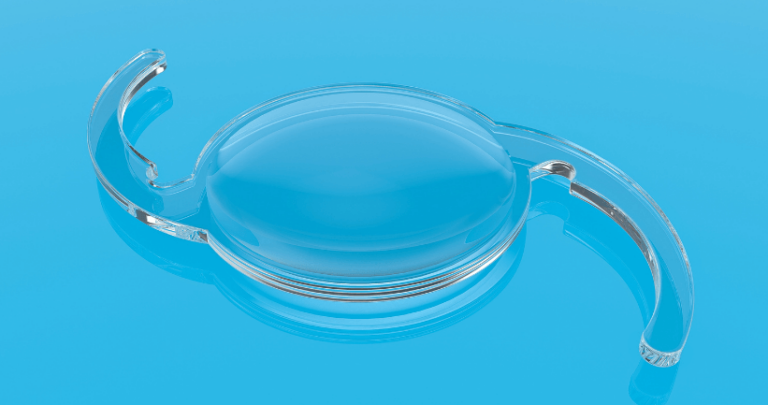
We offer a range of innovative lens options designed to cater to your specific visual requirements. We will ask you about your lifestyle, hobbies, and desire to reduce your need for glasses after surgery. This information will help us choose the proper lens based on your lifestyle and qualifications of your health and vision history. Some lens implants correct astigmatism or warpage of the cornea. Others allow a broader range of vision without glasses (e.g., near and distance). Others correct for vision focus problems. A particularly exciting implant is adjustable after surgery. This allows you and your doctor to customize your focus to your unique visual needs. Our experienced surgeons will engage in thoughtful discussions to assist you in making informed decisions. The lens implant option are summarized in the sections below.
Light Adjustable Lenses (LAL)
For the utmost in personalized vision, consider the revolutionary light adjustable lenses. These innovative lenses allow our surgeons to fine-tune your vision even after the first surgery. Through a series of comfortable and non-invasive adjustments, we can customize your vision to align perfectly with your lifestyle and preferences.
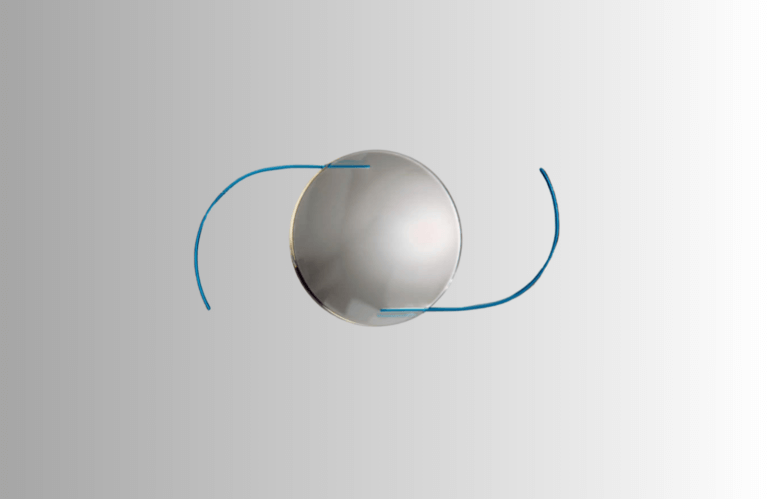
Light Adjustable Lenses (LAL)
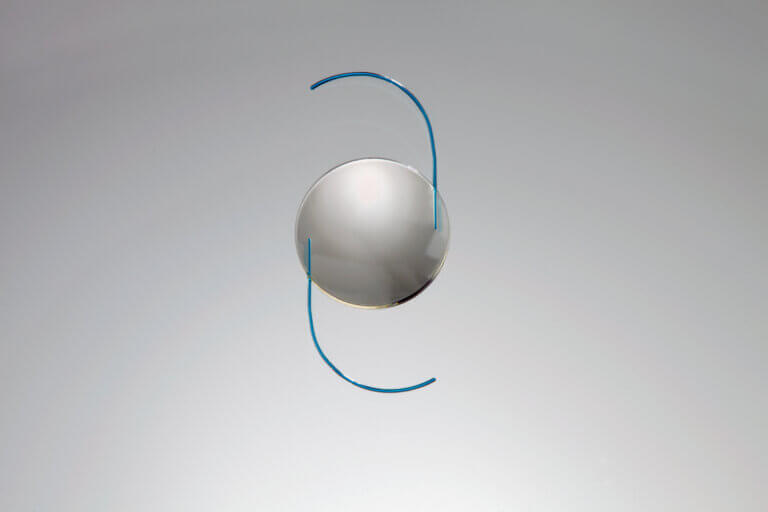
For the utmost in personalized vision, consider the revolutionary light adjustable lenses. These innovative lenses allow our surgeons to fine-tune your vision even after the first surgery. Through a series of comfortable and non-invasive adjustments, we can customize your vision to align perfectly with your lifestyle and preferences.
Presbyopia Correcting Lenses (PCIOLs)
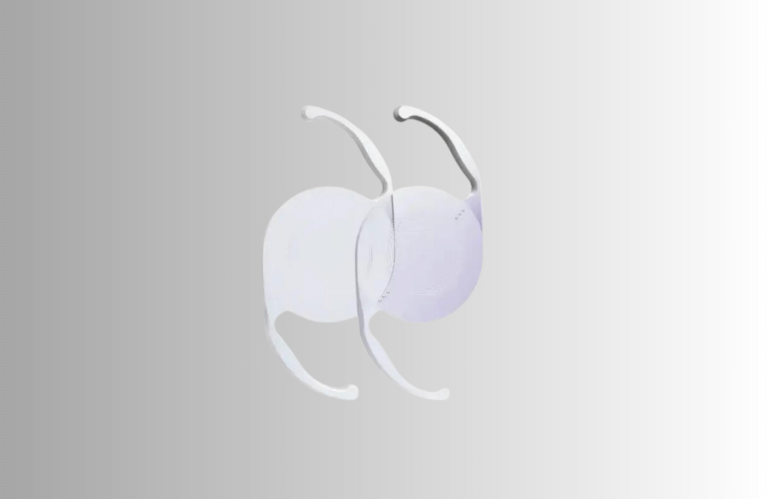
As we age, presbyopia can affect our ability to focus on nearby objects. Our presbyopia correcting lenses help you regain clear close-up vision, enabling you to read, use smartphones, and perform other activities up close with ease. Say farewell to reading glasses and embrace the liberty of clear vision at any distance.
Presbyopia Correcting Lenses (PCIOLs)

If you’re dealing with astigmatism, a common condition that blurs or distorts your vision, Toric lenses could be the perfect solution. These specialized lenses are designed to correct astigmatism, granting you clear and focused vision post-surgery. Imagine a life where you can enjoy the world around you without the hassle of glasses or contacts. As we age, presbyopia can affect our ability to focus on nearby objects. Our presbyopia correcting lenses help you regain clear close-up vision, enabling you to read, use smartphones, and perform other activities up close with ease. Say farewell to reading glasses and embrace the liberty of clear vision at any distance.
Astigmatism Correcting Lenses (Toric Lenses)
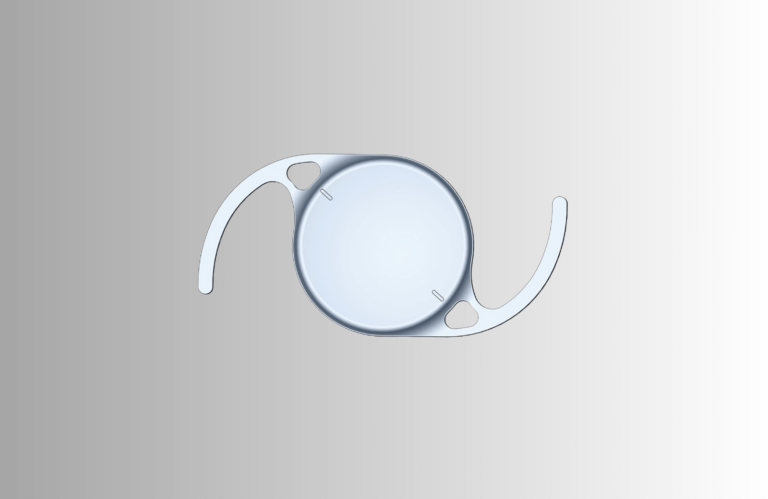
If you’re dealing with astigmatism, a common condition that blurs or distorts your vision, Toric lenses could be the perfect solution. These specialized lenses are designed to correct astigmatism, granting you clear and focused vision post-surgery. Imagine a life where you can enjoy the world around you without the hassle of glasses or contacts.
Astigmatism Correcting Lenses (Toric Lenses)
If you’re dealing with astigmatism, a common condition that blurs or distorts your vision, Toric lenses could be the perfect solution. These specialized lenses are designed to correct astigmatism, granting you clear and focused vision after surgery. Presbyopia correcting lenses include astigmatism correction when needed. Please note that astigmatism correcting lenses without presbyopia correction are monofocal lenses that correct vision at one distance from your eyes (e.g., far distance vision). Other distances (e.g., near vision) will require glasses (such as readers for near vision).

Surgery Day
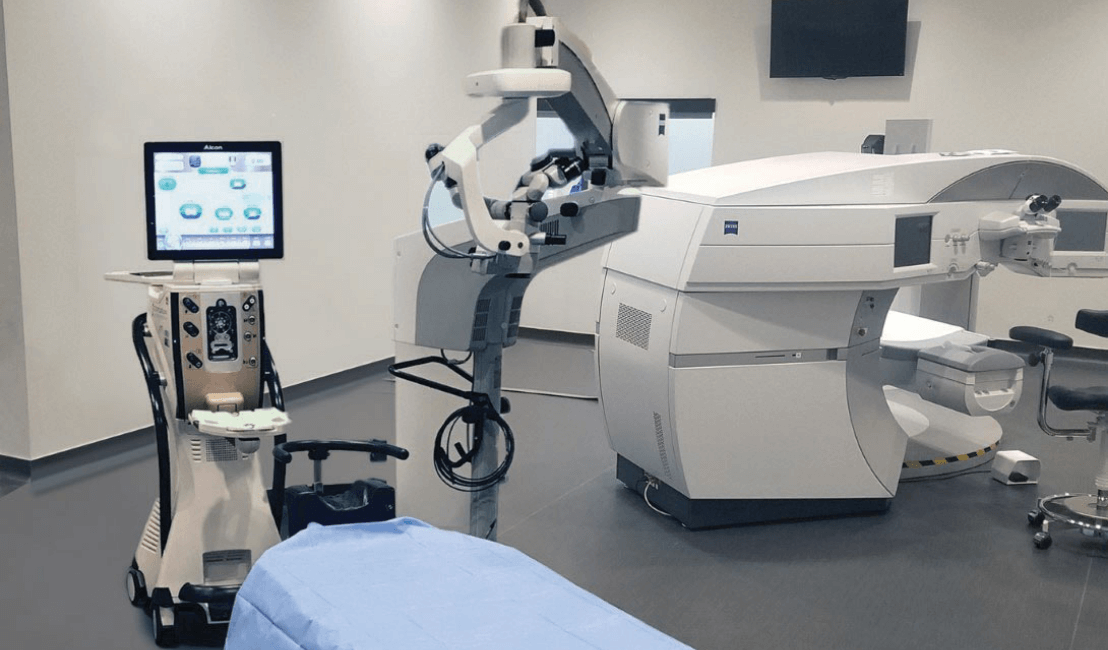
Before your surgery, the surgery center will:
- Call you to review instructions on your current medication, what to wear, and other details.
- You won’t be driving yourself home, if you want IV or oral sedation like most patients, so you’ll need to arrange transportation.
At surgery check-in, you’ll sign consents and ensure all payments have been made. The staff will prepare you and your eye for surgery. The staff and surgeon will work together to ensure you are safe and comfortable during your stay. After a brief recovery period, the staff will confirm your post-op visit appointment and after-surgery care and you can go home.
Surgery Day
Before your surgery, the surgery center will:
- Call you to review instructions on your current medication, what to wear, and other details.
- You won’t be driving yourself home, if you want IV or oral sedation like most patients, so you’ll need to arrange transportation.
At surgery check-in, you’ll sign consents and ensure all payments have been made. The staff will prepare you and your eye for surgery. The staff and surgeon will work together to ensure you are safe and comfortable during your stay. After a brief recovery period, the staff will confirm your post-op visit appointment and after-surgery care and you can go home.
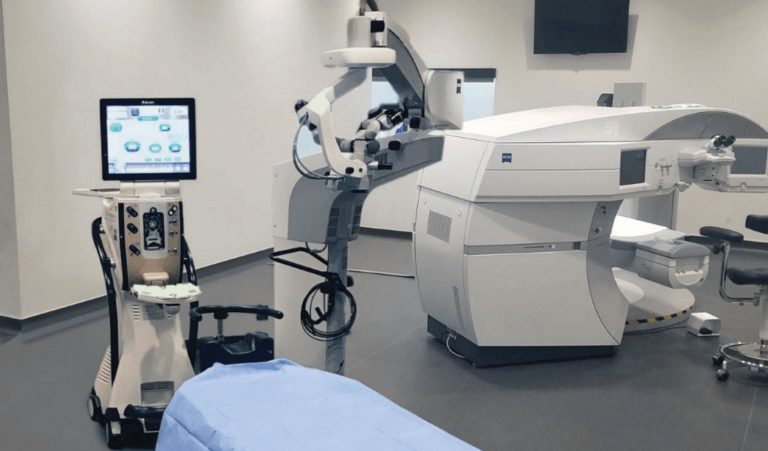
Post-Op and Recovery

On the day of your surgery, you will receive instructions to help heal and protect your eyes during recovery, as well as prescriptions for eye drops. You will be instructed to avoid rubbing your eyes or getting water in them for one week. Some patients can see an improvement in their vision immediately after surgery, while others note that it takes a week or two for their eyes to heal or adapt to the lens implant.
Post-Op and Recovery

On the day of your surgery, you will receive instructions to help heal and protect your eyes during recovery, as well as prescriptions for eye drops. You will be instructed to avoid rubbing your eyes or getting water in them for one week. Some patients can see an improvement in their vision immediately after surgery, while others note that it takes a week or two for their eyes to heal or adapt to the lens implant.
Your Journey to Crystal
Clear Vision Begins Here

We understand that achieving the best vision is a priority for you. While traditional cataract surgery is covered by Medicare and insurance, the cost of managing astigmatism and prespybopia is not included. This means that the cost of premium lens options like toric lenses, presbyopia correcting lenses, and light adjustable lenses are paid for by the patient. These lenses offer advanced benefits that significantly enhance your quality of life, making the investment well worthwhile.
Contact us today to get started!
Your Journey to Crystal
Clear Vision Begins Here

We understand that achieving the best vision is a priority for you. While traditional cataract surgery is covered by Medicare and insurance, the cost of managing astigmatism and presbyopia is not included. Insurances consider these Premium lenses to be Refractive in nature, and therefore not a covered benefit. This means that the cost of premium lens options like toric lenses, presbyopia correcting lenses, and light adjustable lenses are paid for by the patient. These lenses offer advanced benefits that significantly enhance your quality of life, making the investment well worthwhile. Contact us today to get started!
Restore Your Vision Today
Book your cataract consultation and take the first step toward brighter, clearer vision. With advanced treatment options and a focus on personalized care, we’ll help you see the world with renewed clarity.
Embrace Your Full Visual Potential – Embrace Life Anew
Don’t let cataracts restrict your potential. Rediscover your independence, embrace crisp vision, and savor life to the fullest. Contact us today to embark on your journey towards a brighter, clearer future.
Schedule Your Consultation Now – Unlock Your Vision
